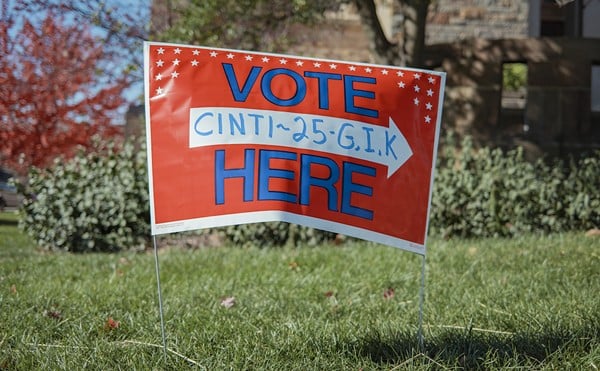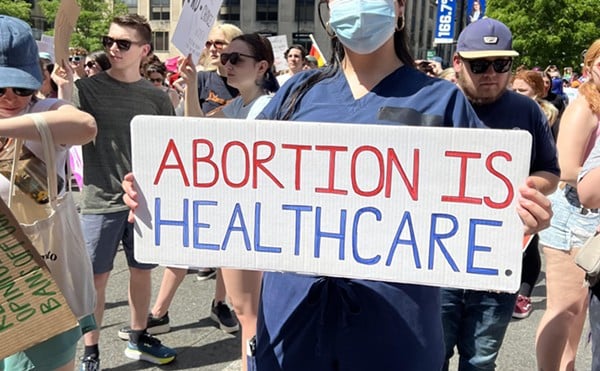|
At some point in a tiny municipal courtroom downtown — where during the morning prisoners were led away in handcuffs and others stood before the judge accused of having clobbered wives, girlfriends and neighbors — jurors and the court were scheduled to hear a case of blocking traffic.
It was a case that attracted the most interest June 16. Blocking traffic — an alleged crime with, pointedly, a more heady explanation than drunkenness or sheer anger.
Blocking traffic on Fifth Street in the afternoon of March 20 had to do with American foreign policy, religious convictions and civil disobedience. A case rarely the norm in a municipal courtroom given more to hearing of routine human failings and follies.
Yet, in the middle of a case involving one man wearing a kilt having pushed another man onto a bar table, that proceeding was briefly recessed as Frank Prouty, a municipal court prosecutor, stood before Municipal Judge Robert Winkler and announced the city was dismissing its charge against Gregory Flannery.
Flannery stood accused of obstructing official business back in March when he and four others were arrested for crossing Fifth Street and blocking rush-hour traffic. They were among a larger group of people protesting the start of the war in Iraq. The second-degree misdemeanor could have carried a possible penalty of 90 days in jail if he were convicted.
But by 1 p.m.
June 16, Flannery — 44, married, the father of four and CityBeat news editor — knew he faced neither jail time nor a criminal conviction on his record.
"I'm delighted," said Flannery, dressed in a tie, as the courtroom emptied of supporters. "Our fight was not with the city of Cincinnati or the county courts. It's with U.S. foreign policy and the killing of civilians in Iraq. It's a victory for the peace movement. There ought to be no penalty for engaging in peaceful protest."
Robert Newman, Flannery's lawyer, a well-known civil rights attorney, was more circumspect about the two-hour morning negotiations with the prosecutor's office that led to the dismissal.
"We explained what Greg's testimony would be, and they looked at a video (of the arrest)," Newman said. "He went there to be arrested. He cooperated in his arrest. He went there to protest the war. Our argument was he didn't break any law, he didn't block traffic.
"The city graciously agreed to dismiss the charges. Both sides walked away from the ring and there was no fight. No winner and no loser."
The video showed Flannery being arrested amidst a chorus of chanting. He's shown quietly and submissively agreeing to his arrest. Traffic was blocked, but, according to the tape, only momentarily, as some lanes opened.
Prouty, the prosecutor, had no comment following the short hearing, walking briskly down the Courthouse hall and away from the courtroom.
Both Flannery and Newman said the negotiations involved Flannery agreeing to plead to a lesser offense, with no prospect of going to jail. Flannery would hear nothing of it.
"I wasn't going to plead guilty for something I didn't think was a crime," Flannery said.
Mike McCleese, one of the five arrested that day and facing the same charges, attended what was scheduled as Flannery's trial.
"I felt a sense of urgency (about the protest)," McCleese said after the dismissal, standing outside the Courthouse. "Innocent people in Iraq were going to be slaughtered. World opinion was against this. I think this (dismissal) shows we are capable of having a democracy that allows the exercise of free speech. I'm heartened."
"I think it's a political victory," Flannery said, "in that nonviolent protesters should not be subjected to criminal prosecution. I take it as an affirmation of the human right to demonstrate for peace."
While Flannery was pleased with the resolution — he wasn't facing jail, after all — he was a bit disappointed with not being able to explain his actions to a jury and the court.
Had the trial proceeded, he would have testified about why he did what he did — that he considered himself embedded in the peace movement, much as mainstream journalists were embedded with U.S. troops heading into war. That he thought the election of President Bush constitutionally questionable. That his church had condemned the war and that he subscribed to the overarching belief that all humanity is one.
He was prepared to call two witnesses, besides himself, to that end — Dan La Botz, a Miami University professor, and Sister Alice Gerdeman, long involved in the city's peace and justice movement.
"I looked forward to being able to use that forum to communicate with the jurors, with the judge and with the prosecutor," Flannery said. "However, there are other forums for having this kind of discussion. Like blocking traffic." ©





